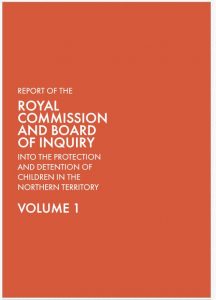In support of the recent SafetyAtWorkBlog article “Detention Royal Commission touches on workplace safety”, WorkSafe NT was contacted with a series of questions about the role of the Northern Territory’s occupational health and safety (OHS) regulator in detention centres. Those questions comprised:
• Has WorkSafe ever undertaken any inspection activities at detention centres in the Northern Territory? If so, what was there a specific request, incident or other catalyst for this?
• Is there a specific group/team of inspectors under whom responsibility for inspecting detention centres would sit?
• Does NTWorkSafe coordinate any WHS inspection activities with other government agencies and authorities?
• Has the Northern Territory Correctional Services ever requested NTWorkSafe’s assistance in safety reviews of their facilities?

 In June 2016, the Australian Broadcasting Corporation showed
In June 2016, the Australian Broadcasting Corporation showed  Workplace injury statistics are always less than reality as they are
Workplace injury statistics are always less than reality as they are 
 At Australia’s
At Australia’s  Industrial manslaughter laws passed through the Queensland Parliament on October 12 2017. The debate about the laws on that day is an interesting read as it illustrates some of the thoughts about workplace safety in the minds of policy decision makers, business owners, industry associations, trade unions and safety advocates.
Industrial manslaughter laws passed through the Queensland Parliament on October 12 2017. The debate about the laws on that day is an interesting read as it illustrates some of the thoughts about workplace safety in the minds of policy decision makers, business owners, industry associations, trade unions and safety advocates. The Queensland Government is in the middle of a debate in Parliament and the media about the introduction of
The Queensland Government is in the middle of a debate in Parliament and the media about the introduction of